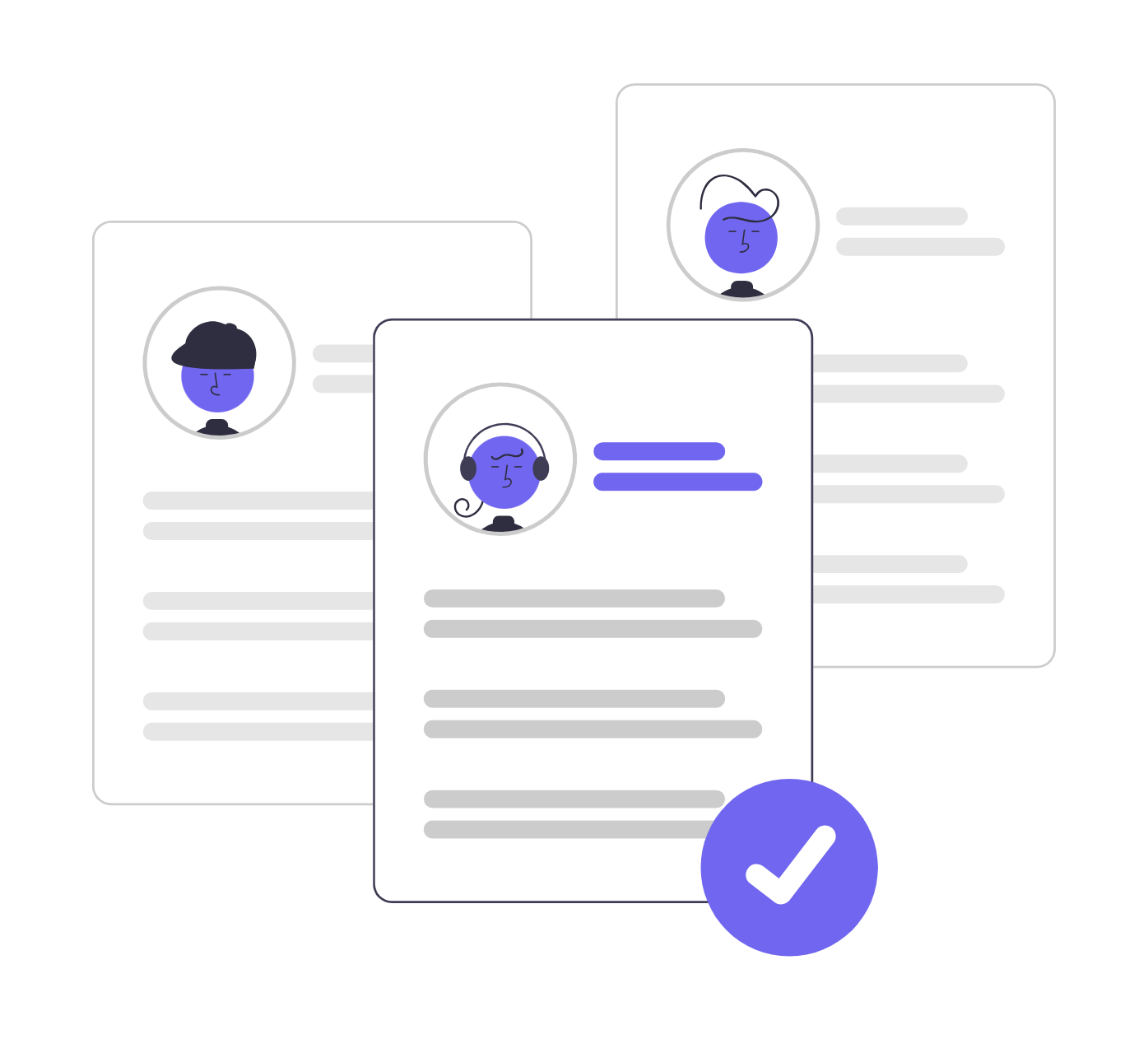Share
Hiring a contractor can feel like a leap of faith. And when you’re staring down bids that seem sky-high, that unlicensed contractor offering to do the job for half the cost can be very tempting.
They may sound confident. They might even have years of experience. But before you hand over that deposit, it’s crucial to understand what you’re really risking.
Unlicensed contractors may promise savings—but behind that price tag often lie legal headaches, safety hazards, unfinished work, and costly regrets.
This post will walk you through everything you need to know—from why people hire unlicensed contractors in the first place, to what can go wrong, to how you can protect your property and peace of mind.
Tempting on Paper: Why Unlicensed Contractors Get Hired
For many homeowners and property investors, the decision starts with price. Unlicensed contractors often charge significantly less than their licensed counterparts—and in some cases, they’re more flexible with timelines and availability. You might even hear things like:
- “I’ve been doing this for 15 years.”
- “Licensing is just a piece of paper.”
- “This doesn’t need permits anyway.”
In forums like Reddit, you’ll find homeowners who were quoted $100,000+ for remodels, then found unlicensed contractors who offered to do the same job for a fraction of that cost.
When you’re trying to stick to a tight budget or avoid delays, these offers are understandably tempting.
But what seems like a shortcut often leads to costly detours.
Hiring shortcuts rarely pay off. If you’re hiring for your team, not just your home, make smarter, faster decisions with skill-based hiring tools.
Quickly identify your most promising candidates. WorkScreen automatically evaluates, scores, and ranks applicants on a performance-based leaderboard—making it easy to spot top talent, save time, and make smarter, data-driven hiring decisions.

The Hidden Risks That Come With That Bargain Price
Hiring an unlicensed contractor doesn’t just mean you’re skipping red tape. You’re also giving up legal protections, quality guarantees, and in many cases—common sense risk management.
Here’s what’s really on the line:
 No Insurance, No Safety Net
No Insurance, No Safety Net
If the contractor or one of their workers gets injured on your property, and they don’t have valid workers’ compensation insurance, you could be held liable. That means medical bills, legal claims, or lawsuits—coming directly to your door.
 No Bonding or Legal Recourse
No Bonding or Legal Recourse
Licensed contractors are usually required to be bonded, which gives you recourse if they abandon the job or fail to deliver. Unlicensed contractors? You may have no realistic way to get your money back—or your project finished.
 Unqualified for Critical Work
Unqualified for Critical Work
Many unlicensed contractors haven’t passed trade exams, aren’t required to stay up-to-date on code changes, and might not even know how to pull permits. That leaves you vulnerable to major safety issues—especially for plumbing, electrical, and structural work.
You’ll Pay for It One Way or Another—Here’s How
Hiring an unlicensed contractor to “save money” is often a short-term win that leads to long-term losses.
 Rework Costs
Rework Costs
Substandard workmanship might not show up right away. But when it does, licensed professionals will often charge more to fix someone else’s mistakes than if they had done the work properly from the beginning. In one Reddit thread, a homeowner had to rip out and redo their entire basement remodel—costing them $17,000 after the city inspected a job done by an unlicensed contractor.
 Lost Home Value
Lost Home Value
If the work doesn’t meet code or lacks permits, your home appraisal may suffer—and potential buyers may walk away. Poorly documented improvements can derail sales or force you to pay for retroactive inspections and repairs.
 Insurance May Deny Coverage
Insurance May Deny Coverage
If damage is caused by unlicensed work, your homeowner’s insurance could deny the claim. For example, a faulty outlet installation that leads to a fire may be your financial responsibility—not the contractor’s.
Just like in construction, hiring the wrong person for your business can create hidden risks. Assess skills up front, not after the damage is done.
👉 Easily administer one-click skill tests with workscreen -This way you can Assess candidates based on real-world ability—not just credentials like résumés and past experience. This helps you hire more confidently and holistically.

When the City Knocks (And You're Not Covered)
One of the most overlooked consequences of unlicensed work is permitting.
Unlicensed contractors frequently skip permits altogether to avoid scrutiny. But that shortcut can come back with a vengeance.
 Fines and Stop-Work Orders
Fines and Stop-Work Orders
City inspectors can shut down your project, issue fines, and even demand that completed work be torn out—if it wasn’t done by a licensed professional or if it bypassed necessary approvals.
 Retroactive Code Violations
Retroactive Code Violations
Work done without proper inspections may not meet building code—even if it looks fine. If discovered years later (especially during a home sale), you could be required to undo and redo the work at your own expense.
Licenses, Bonds, and Insurance—The Safety Net You Can’t See
Licensing isn’t just a formality—it’s a framework of accountability.
To get licensed, most contractors must:
- Complete a minimum number of hours in training or apprenticeship.
- Pass standardized trade exams.
- Maintain ongoing education.
- Carry liability insurance and workers’ comp.
- Be bonded in case of contract disputes or unfinished work.
In Michigan, for example, alteration contractors must complete a 60-hour course, pass exams, and pay multiple fees to stay compliant. That might seem like red tape, but it’s also proof that they’re invested in their craft—and serious about protecting you.
When the Contractor Disappears (Or Botches the Job)
Let’s say you do hire someone without a license, and things start off well.
But then:
- They stop showing up.
- They say the job costs more than expected.
- They finish quickly—but something feels off.
You might have no legal leverage. No bond to claim. No license board to report them to. And no protection if they vanish after you’ve paid a deposit.
One Reddit commenter called this “taillight insurance”—because once the contractor’s truck drives off, you’re on your own.
Yes, You Could Be Fined—Even If You Didn’t Know Better
Homeowners aren’t always off the hook. In many areas, knowingly hiring an unlicensed contractor is illegal.
And if you’re a landlord or investor, the risks compound:
- Injured tenants could sue you for damages.
- Cities could fine you for code violations or work done without permits.
- You might even be required to disclose illegal or unpermitted work to future buyers.
In other words, the risk doesn’t end with the contractor—it ends with you.
What’s Okay for Handymen vs. What Requires a Licensed Pro
To be fair, not every job needs a fully licensed contractor.
 Typically Safe for Unlicensed Help:
Typically Safe for Unlicensed Help:
- Painting
- Yardwork or landscaping
- Cleaning or minor repairs
- Installing shelves, blinds, or fixtures
 Always Hire a Licensed Pro For:
Always Hire a Licensed Pro For:
- Electrical work (even installing outlets or ceiling fans)
- Plumbing or HVAC
- Structural changes (like walls, floors, roofing)
- Additions or renovations that require permits
When in doubt, always check with your city’s building department. Many will gladly walk you through what work requires a permit and which trades need licensing.
The Simple Steps to Hiring Smart and Staying Protected
If you want peace of mind, here’s what to do before hiring any contractor:
- Verify their license with your state licensing board (e.g., LARA in Michigan).
- Ask for a Certificate of Insurance (COI) for both liability and workers’ comp.
- Confirm they’re bonded and understand what it covers.
- Read reviews and check references—including past clients and completed projects.
- Get a detailed contract in writing that includes:
- Scope of work
- Total cost and payment schedule
- Timeline with milestones
- Warranty or service guarantees
- Permit responsibility
- Dispute resolution terms
Protect yourself when hiring contractors—and when hiring employees. Don’t waste time on unverified talent.
Eliminate low-effort applicants—including those who use AI Tools to apply, copy-paste answers, or rely on "one-click apply." This way, you focus only on genuine, committed, and high-quality candidates—helping you avoid costly hiring mistakes.

Final Thoughts: Cheap Work Is Never Cheap in the End
Hiring an unlicensed contractor might look like a smart way to save money—but the risks often far outweigh the rewards.
Legal exposure, shoddy work, permit violations, safety hazards, and no recourse if things go wrong… these aren’t just “what-ifs.” They’re common outcomes shared by real homeowners and property investors who took the gamble.
So before you hand over cash to the lowest bidder, ask yourself: Is it worth risking your home, your wallet, and your peace of mind to save a few bucks today?
When it comes to home improvement and property upgrades, do it right the first time. Hire smart. Protect your investment. And leave shortcuts to people who don’t mind cutting corners.
FAQ
Yes. In many states or countries, knowingly hiring an unlicensed contractor can expose you to legal and financial risk. You may be held liable for injuries on the job, face fines, or even void your homeowner’s insurance. It could also violate local building codes or housing authority rules.
You can sue an unlicensed contractor, but your legal protection may be limited. In some jurisdictions, contracts with unlicensed contractors are considered unenforceable—making it harder to recover damages. However, if they committed fraud or caused significant property damage, legal options may still be available.
Often not. Many insurance policies exclude coverage for damages or injuries related to unlicensed or unpermitted work. If something goes wrong, you could be left fully responsible for the costs.
They may offer lower upfront prices—but that often comes at a steep cost. Unlicensed work can lead to expensive repairs, fines, or total rework if inspections fail or permits were skipped.
Most licensing boards have public online databases. You can search by name, license number, or business name. Also ask the contractor to show proof of license and insurance before hiring
Stop the work immediately and consult a legal professional or local licensing authority. You may need to bring in a licensed contractor to inspect or redo the work—and report the unlicensed activity to protect yourself and others.

